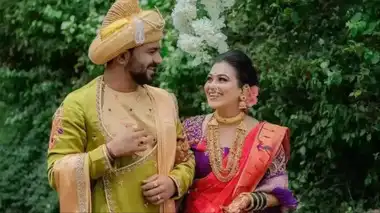Pune, May 26, 2025 — The tragic death of 26-year-old Vaishnavi Hagawane in Pune has reignited national outrage over dowry-related abuse and led to multiple arrests, including members of a politically connected family. The case has once again drawn sharp focus to the persistent issue of domestic violence and dowry demands in India.
Vaishnavi was found dead on May 16 at her matrimonial home in Bhukum, Pune. While initial reports suggested suicide, a detailed post-mortem examination revealed multiple injuries, prompting suspicions of foul play. Her family has alleged that she was subjected to prolonged physical and emotional abuse, primarily driven by escalating dowry demands, including pressure to provide ₹2 crore for land acquisition. This was in addition to the gold, silver, and vehicle reportedly already given at the time of her marriage.
Following a complaint by Vaishnavi’s father, Anil Kaspate, the Bavdhan police arrested her husband, Shashank Hagawane, along with his mother and sister. Later, police apprehended her father-in-law, Rajendra Hagawane, a former Nationalist Congress Party (NCP) leader, and his other son Sushil, who had been absconding. Both were remanded to police custody until May 28 as investigations continue.
Adding a further emotional dimension to the case, Vaishnavi’s 10-month-old son was initially kept at her in-laws’ residence following her death. However, after intervention from the Maharashtra State Women’s Commission, the child was reunited with his maternal grandparents, offering a semblance of comfort to the grieving family.
The incident has triggered widespread discussion, both on the ground and across social media. Several prominent public figures have spoken out, expressing their condemnation of the dowry system and the deeply rooted cultural norms that enable it. Actor Nana Patekar criticized the obsession with extravagant weddings and urged society to reject materialism in marriage practices. Marathi actor Aastad Kale also voiced his concerns, calling for accountability on both sides of matrimonial arrangements.
The impact of Vaishnavi’s death has extended beyond her immediate circle. Inspired by her case, other women have come forward to share their own stories of abuse and resistance. One such voice, Sheetal Bapat, revealed that she had left her own marriage due to similar dowry-related pressures. Her public statement has encouraged conversations about women’s autonomy and the need for stronger support systems.
The case is still under investigation, but it has already galvanized calls for systemic change. Legal experts and women’s rights activists have emphasized the need for stricter enforcement of anti-dowry laws, more accessible helplines for victims, and societal reforms that challenge regressive marital expectations.
Conclusion
Vaishnavi Hagawane’s death has become more than a criminal case—it is now a symbol of the ongoing battle against dowry harassment and domestic abuse in India. As the nation watches closely, this tragedy may serve as a pivotal moment to confront deeply entrenched injustices and advocate for long-overdue reform.



